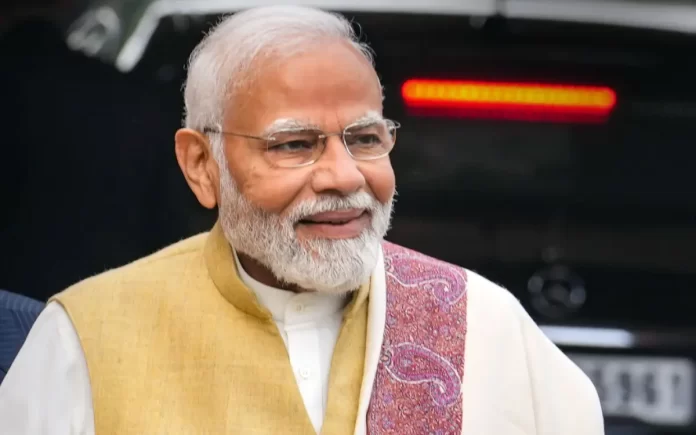London: Elites may typically spurn populist leaders worldwide, but Prime Minister Narendra Modi is experiencing a surge in backing from educated voters, asserts esteemed international publication The Economist.
In an insightful piece titled ‘Why India’s elites back Narendra Modi,’ The Economist delineates, “Three factors — class politics, economics, and elite admiration for strongman rule — help explain why.”
Labeled as ‘the Modi paradox,’ The Economist distinguishes India’s premier from conventional right-wing populists like Donald Trump, emphasizing Modi’s unique standing as a formidable leader.
“In most cases, endorsement for anti-establishment populists, such as Trump, and agendas like Brexit, tends to diminish with higher education levels. Yet, India presents a paradox with Modi. This anomaly elucidates why he stands as the most favored leader among major democracies today,” the publication observes.
Also Read: Pakistan Implements Austerity Measures: Red Carpets Banned at Official Events to Cut Expenses
Citing a Gallup survey, it underscores that while in the United States, merely 26 percent of university-educated respondents approve of Trump, as opposed to 50 percent without degrees, Modi disrupts this trend entirely.
Drawing from a Pew Research survey, The Economist highlights a significant contrast: in 2017, while 66 percent of Indians with only primary education viewed Modi very favorably, the figure soared to 80 percent among those with higher education levels.
Post the 2019 general election, a Lokniti survey unveiled that approximately 42 percent of Indians with degrees supported Modi’s Bharatiya Janata Party, eclipsing the 35 percent among those with only primary education.
Simultaneously, The Economist notes, Modi’s appeal among the educated does not overshadow his support from other demographics.
Echoing insights from Neelanjan Sircar, a political scientist at the Centre for Policy Research, it underscores that akin to other populist leaders, Modi garners significant traction among lower-class voters.
However, unlike many global counterparts, Modi’s support transcends class boundaries, extending notably into educated segments, the article elucidates.
Attributing economics as a pivotal catalyst, the article accentuates India’s robust GDP growth, albeit disparately distributed, propelling rapid expansion within the Indian upper-middle class.
Reflecting on the political landscape, it recalls the Congress party’s erstwhile stronghold among the upper-middle class during the late 2000s, disrupted by subsequent slowdowns and corruption scandals in the 2010s.
“Modi’s tenure has elevated India’s economic and geopolitical stature globally,” it remarks.
Moreover, some advocate for strongman governance, inspired by the success stories of China and East Asian tigers, perceiving authoritarian approaches as conducive to dismantling barriers to economic progress.
Anticipating potential shifts in Modi’s elite support base, The Economist warns against excessive state coercion, as seen in the case of Delhi Chief Minister Arvind Kejriwal, highlighting the enduring faith in democracy among elites.
Despite lingering concerns, a lack of credible alternatives sustains elite backing for Modi, amidst waning faith in Congress and its leader Rahul Gandhi, deemed dynastic and disconnected from reality.
“A formidable opposition remains the sole potential threat to Modi’s elite support. Yet, presently, such a contender remains elusive,” The Economist concludes.
As India braces for elections spanning seven phases between April 19 and June 1, with results slated for June 4, the nuanced dynamics of educated support for Modi underscore a compelling facet of contemporary Indian politics.



